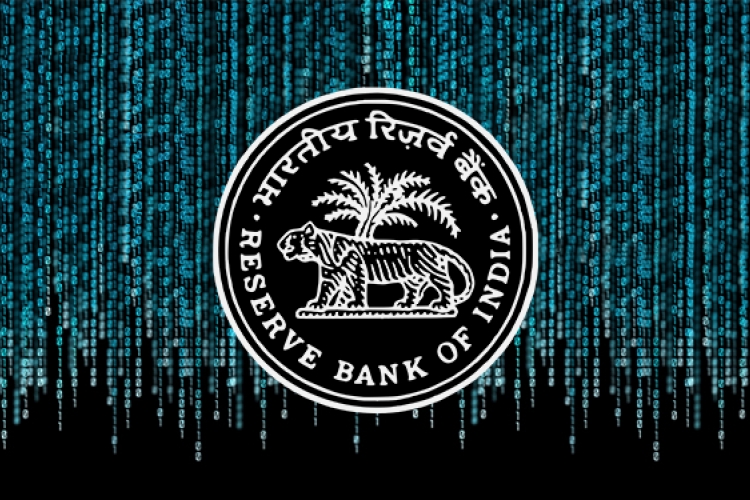RBI's INTERIM DIVIDEND TO GOVT-a deeper perspective
In news: RBI to pay Rs 28,000 crore as interim dividend to government
What is Interim Dividend ?
An interim dividend is a dividend payment made before a company's annual general meeting and the release of final financial statements. This declared dividend usually accompanies the company's interim financial statements. The interim dividend is typically the profit payments made to shareholders.
Economic Capital Framework of RBI:
The government will seek interim dividend from the central bank this fiscal, added that the practice of asking for interim dividend is here to stay. The economic capital framework (ECF) that governs the Reserve Bank of India’s (RBI) surplus transfer has been a sore point between the government and the central bank in recent months. Consequently, the RBI’s central board earlier this month decided to set up a committee to examine the ECF under Bimal Jalan.
What is all the fuss about ?
Remember the RBI governors versus Centre’s conflict of interest? As a row flared over fears that the central bank’s independence was being eroded, RBI governor Urjit Patel abruptly quit last month, and was replaced by former finance ministry official Shaktikanta Das,IAS. The reason for the conflict being,the demand by the government to transfer of surplus funds from the central bank.
An expert committee on the Economic Capital Framework (ECF) that governs the central bank’s surplus transfer to the government, has almost been finalised. And the 28,000 cr was decided.The finance ministry has asserted that the Centre will meet its fiscal deficit target of 3.3% of GDP for FY19, despite a shortfall in GST collection and an expected boost to spending ahead of 2019 polls. An interim dividend will come in handy in such a situation which will help the Centre meet its revised budget estimates that include an allocation for the first-ever income transfer to farmers and burnish its fiscal credentials ahead of the general elections.
Where RBI gets revenue to give dividends?
The RBI typically generates revenue from trading in bonds and currencies, part of which goes toward building reserves, while the remainder is transferred to the government in the form of a dividend.
The interim dividend for this financial year ending in March would be decided by the RBI board separately and not by the six-member committee formed to review the future dividend transfer policy.
This will be the second consecutive year in which the RBI has given the government an interim dividend, ahead of an annual payout that it normally gives the government in August, following the closing of the RBI’s books in June.
As for capital infusion into PSBs, the government had issued recapitalisation bonds worth `80,000 crore last fiscal and plans to issue another `65,000 crore in FY19. Already, it had issued securities worth around `23,000 crore so far this fiscal to a clutch of PSBs. The next round of capital infusion is expected to take place within the next fortnight
This will be the highest receipt from RBI in a single financial year for the government, exceeding the Rs 65,896 crore it received in FY16 and Rs 40,659 crore in FY18 .The higher dividend will help government meet the shortfall in gross revenue from the goods and services tax (GST) envisaged at Rs 1 lakh crore in the February 1 budget. Adding to this will be the Rs 50,000 crore expected from corporate tax.
The cash transfer scheme to small and marginal farmers is expected to cost Rs 20,000 crore this fiscal year. The government has budgeted a fiscal deficit of 3.4% of GDP in the revised estimate for FY19 against 3.3% in the budget estimate.
The government is also planning to hold back tax refunds up to 1 trillion rupees of some corporates to be able to adjust the revenue gap to meet its fiscal deficit
Was Urjit Patel wrong and Shaktikanta Das right ?
Payment of surplus or interim dividend to the government is a part of the RBI Act.It can also be noted that some concerns have been raised about the practice of government asking RBI for an interim payout before the close of a fiscal year(June for RBI) to bridge its fiscal gap for the second consecutive year. A wider fiscal deficit is generally seen as a concern for RBI because of its inflationary impact.
There will also be an impact of the budget proposals such as cash to farmers and other proposals on inflation and it is doubtful if the same has been factored in its
projections as more disposable income with the public, especially with the farmers, are being termed as inflationary which eventually would cause fiscal slippage.
It can be noted that RBI had been for long very particular about speaking out against government moves which may lead to fiscal expansion or a dent to credit culture as with moves like farm loan waivers.
Even in the recent policy resolution with a 4:2 vote for rate cut, the MPC limited itself to saying the budget proposals will increase the disposable incomes but will take time to take root.The fiscal and monetary discipline shall see a slippage in near future considering the global and domestic macroeconomic trends,at the same time ,we shall not forget that growth and inflation are directly coupled and this initiative may sustain the growth scenario . But without the initiative to decrease the unemployment rate , these expansionary measures could prove detrimental and short sighted.
Authored by Prabhakaran
Disclaimer:The views expressed here in are those of the presenter for academic purposes ; they neccesarily donot reflect the opinion of the institution nor any public agency.
For submissions,Send a short email message to kamrajiasacademy@gmail.com describing the article you would like to publish.


 IAS -2025 Prelims Combined Mains Batch - Starts on - 13-05-2024
IAS -2025 Prelims Combined Mains Batch - Starts on - 13-05-2024